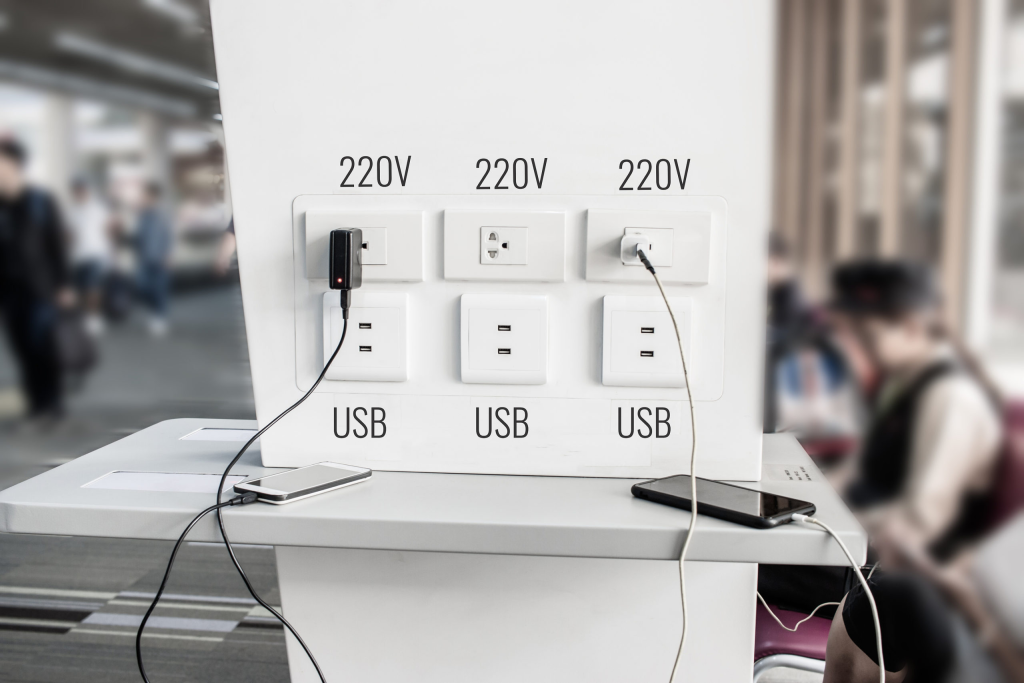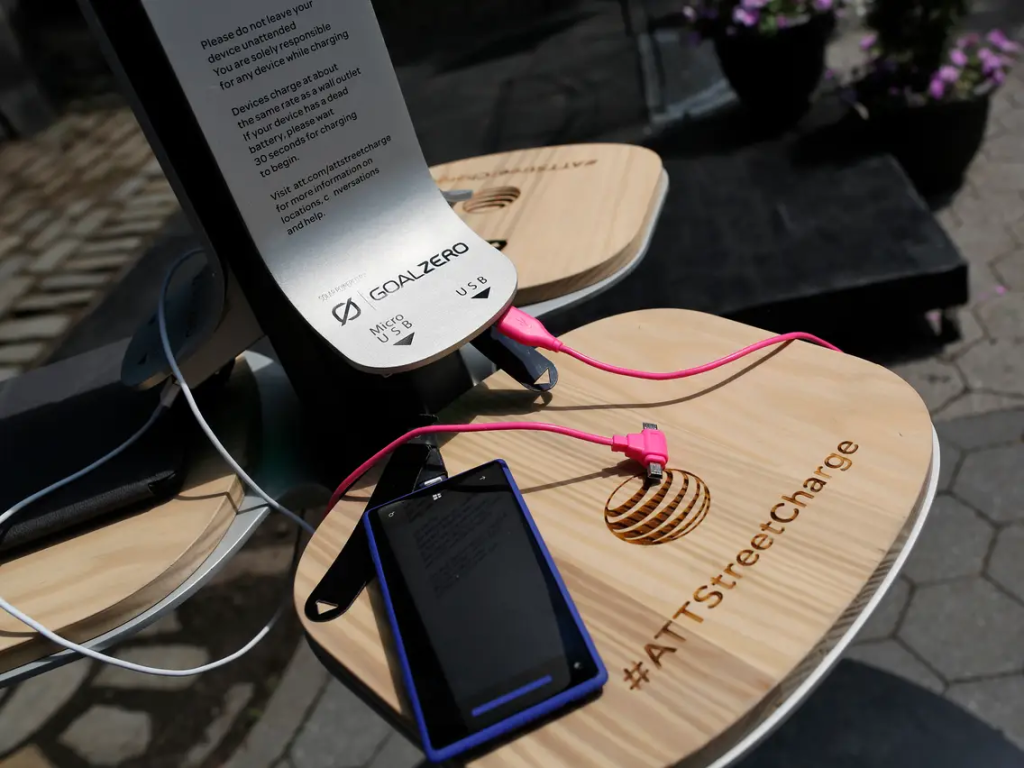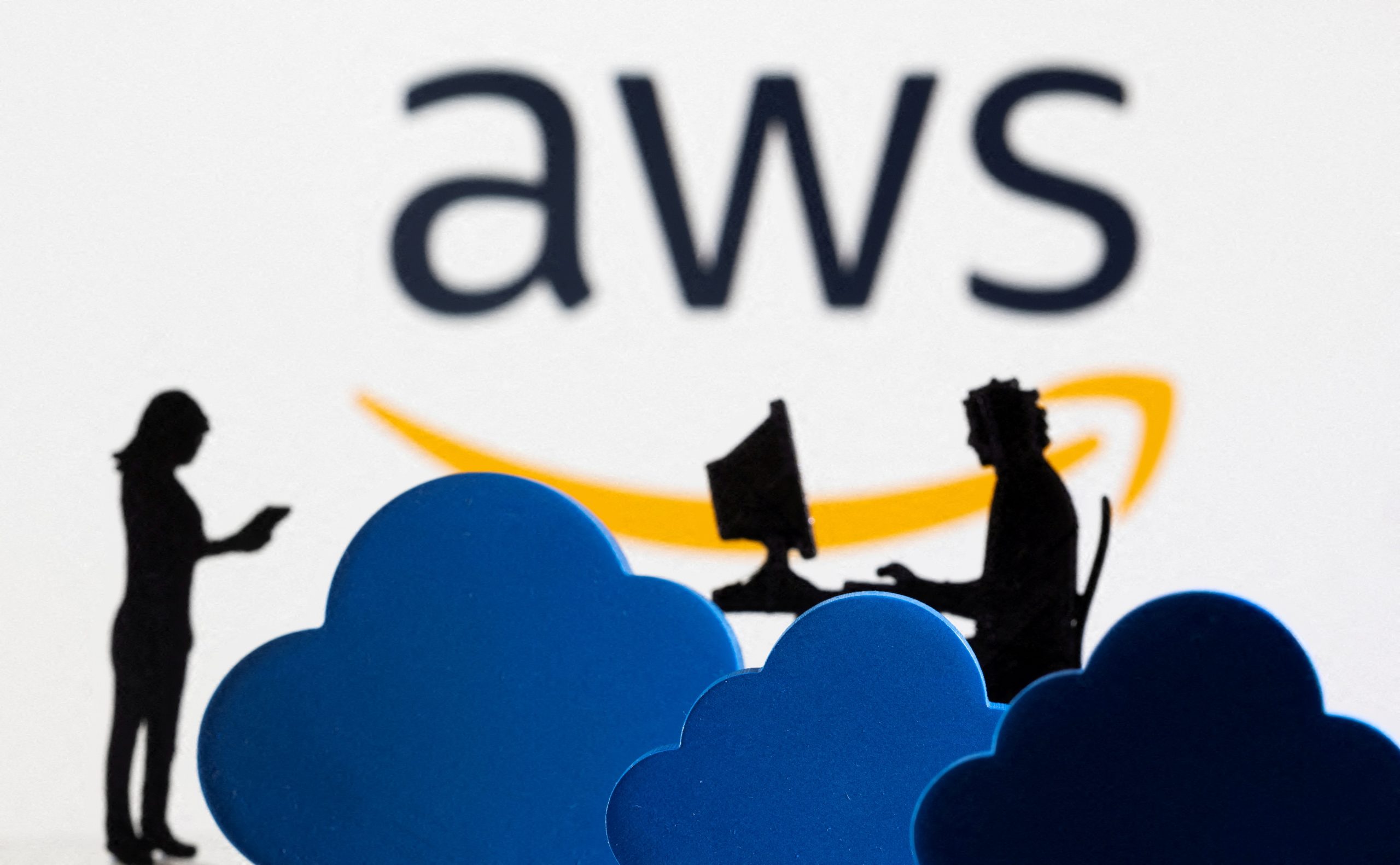The Dangers of Public Phone Charging Stations: How to Keep Your Devices Safe
The Dangers of Public Phone Charging Stations: How to Keep Your Devices Safe

In our increasingly connected world, it’s common to find ourselves in situations where our smartphones or other mobile devices are running low on battery. Public phone charging stations, often found in malls and airports, seem like a convenient solution. However, the FBI is warning consumers about the potential risks associated with using these public charging stations. Bad actors are taking advantage of these stations to spread malware and monitoring software, compromising the security of our devices and personal information.
Understanding the Risks: Juice Jacking and Malicious Charging Stations

Back in 2011, researchers coined the term “juice jacking” to describe the problem of compromised charging stations. The simple act of plugging your phone into a compromised power strip or charger could lead to your device getting infected with malware. Drew Paik, formerly of security firm Authentic8, explained in an interview with CNN that “just by plugging your phone into a [compromised] power strip or charger, your device is now infected, and that compromises all your data.”
The charging cord itself also poses a risk. When you connect your iPhone to your Mac using the charging cord, you can transfer data such as photos from your phone to your computer. If a charging port is compromised, a hacker could gain access to your email, text messages, photos, and contacts. The potential for data breaches and privacy violations is significant.
The FBI’s Warning and Advice

The FBI, through its Denver branch, has issued a warning to the American public about the dangers of using public phone charging stations. While they did not provide specific examples, they advised consumers to carry their own charger and USB cord and use an electrical outlet instead of relying on public charging stations. This precaution can help mitigate the risks associated with malware and monitoring software.
Vikki Migoya, public affairs officer at the FBI’s Denver branch, emphasized the importance of staying safe and diligent, especially while traveling. The FBI regularly provides reminders and public service announcements to raise awareness about potential threats.
The Federal Communications Commission’s Perspective

The Federal Communications Commission (FCC) also recognizes the risks posed by compromised charging stations. They updated a blog post to warn consumers about the potential consequences of using these stations. According to the FCC, a corrupted charging port can allow a malicious actor to lock a device or extract personal data and passwords.
The FCC even highlighted cases where criminals intentionally leave cables plugged in at charging stations or distribute infected cables as promotional gifts. These tactics further illustrate the need for caution when using public charging stations.
Protecting Your Devices: Best Practices
To ensure the safety of your devices and personal information, it’s essential to adopt best practices when it comes to charging. Here are some tips to keep in mind:
1. Carry Your Own Charger and USB Cord
The most effective way to avoid the risks associated with public charging stations is to carry your own charger and USB cord. By relying on your personal equipment, you eliminate the potential for exposure to compromised charging stations.
2. Use Electrical Outlets Instead
Whenever possible, opt for electrical outlets instead of public charging stations. While it may be less convenient, it significantly reduces the risk of malware infection or data breaches.
3. Be Wary of Promotional Cables
If you receive a charging cable as a promotional gift or from an unknown source, exercise caution before using it. Infected cables can be used as a method of spreading malware and compromising your devices.
4. Consider Portable Power Banks
Investing in a portable power bank can provide a reliable and secure way to charge your devices on the go. These devices store power and allow you to charge your phone without relying on public charging stations.
5. Avoid Accessing Sensitive Information
While your phone is connected to a public charging station, it’s advisable to avoid accessing sensitive information, such as banking apps or personal accounts. Limit your activities to essential functions until you can charge your device securely.
6. Keep Your Devices Updated
Regularly updating your devices’ operating systems and applications can help protect against known vulnerabilities. Install the latest security patches to ensure you have the most up-to-date protection against potential threats.
7. Use Security Software
Consider installing reputable security software on your devices. Antivirus and anti-malware programs can provide an additional layer of protection against potential risks.
Conclusion
While public phone charging stations may seem convenient, it’s crucial to be aware of the risks they pose. The FBI and the FCC have issued warnings about the potential for malware and monitoring software to compromise our devices and personal information. By following best practices such as carrying your own charger, using electrical outlets, and being cautious of promotional cables, you can minimize the risks associated with public charging stations. Remember, protecting your devices is not only about convenience but also about safeguarding your privacy and security in an increasingly interconnected world.



